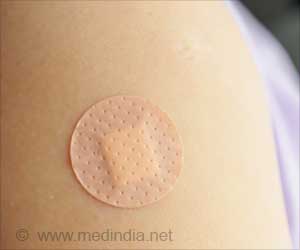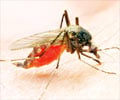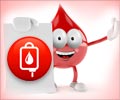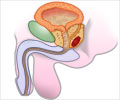How Heart Plays a Major Role in our Organ?
Your heart is probably the most important organ in your body; and why not? It pumps the blood throughout your body and controls the heartbeat and blood pressure. Considering its remarkable ability to keep the body going, and the various organs and organ systems functioning normally, it does deserve all the extra care and attention (1✔ ✔Trusted Source
Heart
Go to source).
Interesting Facts about the Human Heart
Do you know all about this ‘most important’ part of your body? Here are some really cool facts about the heart that you probably didn’t know-
- Size Issues: The size of the heart can be estimated by looking at the fist-for kids, the heart is around the same size as one fist, and for adults, it is two (2✔ ✔Trusted Source
Amazing Heart Facts
Go to source). - Heart Beats: In a day, the heart beats more than 100,000 times; and in a whole lifetime, it can go as high as 2.5 billion beats (2✔ ✔Trusted Source
Amazing Heart Facts
Go to source). - Pump it up: Your heart pumps out a lot of blood in your entire lifetime-by a lot, we mean approximately equal to 3 super tankers (2✔ ✔Trusted Source
Amazing Heart Facts
Go to source). - Time Factors: A normal kitchen faucet would need to be running for at least 45 years to flow out the same amount of water as the blood pumps out during an average lifetime.
- Electric it is! : The heart has a power output ranging from 1-5 watts; calculated for 80 years, it equals around 2.5 gigajoules of power (3✔ ✔Trusted Source
Awesome Heart – The Busiest Man in our Body
Go to source). - Super Cell: The human body contains over 75 trillion cells, and all of them have access to the blood pumped by the heart; except for the cornea of the eye (4✔ ✔Trusted Source
Overview of Cardiovascular System
Go to source). - Lub Dub: The heart contains 4 valves, and the lub dub sound of the heart beating is actually made by the closing and opening of the valves of the heart.
- Beats for You: The heartbeat of a baby begins around 4 weeks after conception (5✔ ✔Trusted Source
Vital Systems - The Beating Heart
Go to source). - Tissue or Liquid: As much as it looks like a reddish blue liquid, blood is actually a tissue, just like your skin, kidney, and many other parts of the body.
- Speed it up: When you are at rest, it takes just six seconds for your blood to get from your heart to your lungs, and back; about eight seconds for it to travel from the heart to the brain and back; and just sixteen seconds for it to travel from the heart to the toes and back to the heart.
- Men-Women Heart Beats: A woman’s heart beats much faster than a man’s on an average- it beats for around 78-82 beats a minute, while a man’s heart beats around 70-72 beats per minute (6✔ ✔Trusted Source
Role of Biological Sex in Normal Cardiac Function and in its Disease Outcome – A Review
Go to source).




























